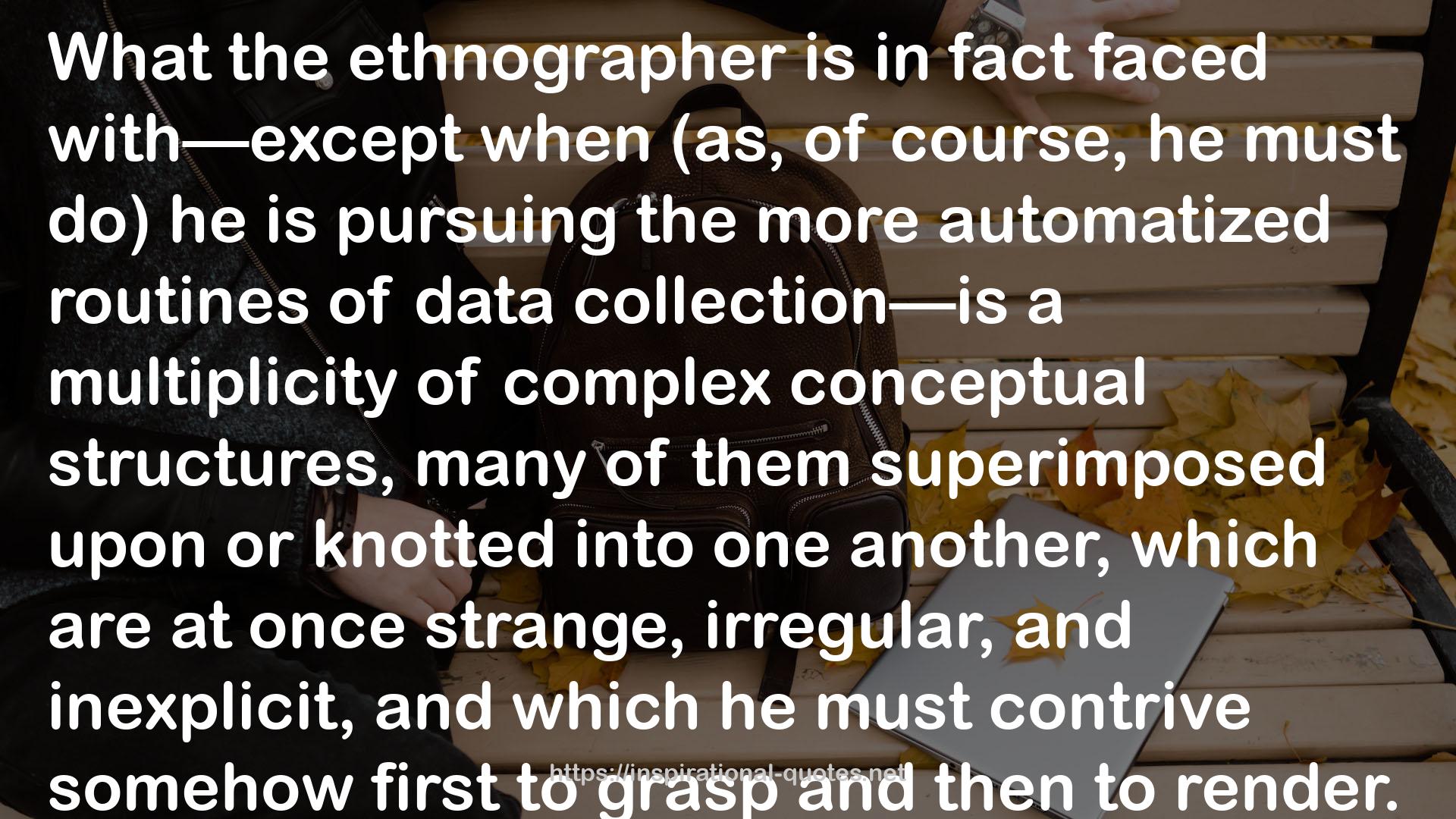" What the ethnographer is in fact faced with—except when (as, of course, he must do) he is pursuing the more automatized routines of data collection—is a multiplicity of complex conceptual structures, many of them superimposed upon or knotted into one another, which are at once strange, irregular, and inexplicit, and which he must contrive somehow first to grasp and then to render. And this is true at the most down-to-earth, jungle field work levels of his activity; interviewing informants, observing rituals, eliciting kin terms, tracing property lines, censusing households … writing his journal. Doing ethnography is like trying to read (in the sense of “construct a reading of”) a manuscript—foreign, faded, full of ellipses, incoherencies, suspicious emendations, and tendentious commentaries, but written not in conventionalized graphs of sound but in transient examples of shaped behavior. "
― Clifford Geertz , The Interpretation of Cultures
